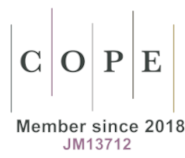The Ruling Discourse on Proper Womanhood in the Hungarian Parliament
DOI:
https://doi.org/10.2478/ipcj-2014-0001Keywords:
Hungary, political discourse, FIDESZ-KDNP coalition, gender hierarchy, proper womanhood, motherhoodAbstract
Starting with a debate in September 2012 on the incorporation of domestic violence as a distinct offence in Hungary’s new Criminal Code, the issue of gender and proper womanhood has regularly re-surfaced in statements made by ruling coalition MPs in parliamentary debates. Drawing on discourse analysis, this study investigates a selection of these statements in the context of the government’s current policy and public discourse. The paper argues that these discourses outline an essentialist model reflective of a dominant ideology that is traditional, Christian, patriarchal and heteronormative, which, by hinting at women’s accountability for certain social ills, also allows for a chain of associations that ultimately results in the subversion of the overall social status of women, dividing and marginalising them further and discrediting any claims or actions aimed at establishing a more egalitarian society in the country.
Downloads
References
Acsady Judit and Agnes Hochberg. “Feminism Misinterpreted in Hungary.” Peace Review: A Journal of Social Justice 4 (1992): 4, 49-52.
Google Scholar
Ahall, Linda. “Motherhood, Myth and Gendered Agency in Political Violence.” International Feminist Journal of Politics 14 (2012): 1, 103-120.
Google Scholar
Anderson, Benedict. Imagined Communities: Reflections on the Origin and Spread of Nationalism. London: Verso, 1991.
Google Scholar
Arpad, Susan and Sarolta Marinovich. “Why Hasn’t There Been a Strong Women’s Movement in Hungary?” The Journal of Popular Culture 29 (1995): 2, 77-96.
Google Scholar
Balogh, Margit. “A Horthy korszak keresztény nőképéről–Mindszenty József: Az édesanya című írása alapján [On the Christian Female Image in the Horthy Era—Based on József Mindszenty’s writing The Mother].” Rubicon 20 (2009): 4. Web. 5 January 2014 http://www.rubicon.hu/magyar/oldalak/a_korszak_kereszteny_nokeperol_mindszenty_jozsef_az_edesanya_cim_irasa_kapcsan/
Google Scholar
Barát Erzsébet. “Variations to Co-optations: The Uses and Abuses of Feminism.” Women/Gender Studies: Against All Odds. Eds. Eva Blimlinger and Therese Garstenauer. Innsbruck: Studienverlag, 2005, 21-29.
Google Scholar
Barker, Chris and Darius Galasinski. Cultural Studies and Discourse Analysis: A Dialogue on Language and Identity. London: Sage, 2001.
Google Scholar
Bátory, Ágnes. “Kin-state Identity in the European Context: Citizenship, Nationalism and Constitutionalism in Hungary.” Nations and Nationalism 16 (2010): 1, 31-48.
Google Scholar
Berkovitch, Nitza. “Motherhood as a National Mission: The Construction of Womanhood in the Legal Discourse in Israel.” Women’s Studies International Forum 20 (1997): 5-6, 605-619.
Google Scholar
Bozóki, András. “Consolidation or Second Revolution? The Emergence of the New Right in Hungary.” Journal of Communist Studies and Transition Politics, 24 (2008): 2, 191-231.
Google Scholar
Calhoun, Craig. “Imagining Solidarity: Cosmopolitanism, Constitutional Patriotism, and the Public Sphere.” Public Culture 14 (2002): 1, 147-171.
Google Scholar
DeRogatis, Amy. “Gender.” Themes in American Religion and Culture. Eds. Philip Goff and Paul Harvey. Chapel Hill: University of North Carolina Press, 2004, 197-226.
Google Scholar
Domosh, Mona and Joni Seager. Putting Women in Place: Feminist Geographers Make Sense of the World. New York: Guilford Press, 2001.
Google Scholar
Fairclough, Norman. Analysing Discourse: Textual Analysis for Social Research. London: Routledge, 2003.
Google Scholar
Fábián Katalin. “Naming Rights: Nation, Family, and Women’s Rights in the Debates on Domestic Violence in Contemporary Hungary.” Hungarian Studies Review 41 (2014): 1-2, 153-182.
Google Scholar
Foucault, Michel. “A kormányozhatóság [On Governance].” A fantasztikus könyvtár: Válogatott tanulmányok, előadások, interjúk. Budapest: Pallas Stúdió, 1998, 106-124.
Google Scholar
Greenfeld, Liah. Nationalism: Five Roads to Modernity. Cambridge: Harvard University Press, 1992.
Google Scholar
Haney, Lynne. Inventing the Needy: Gender and the Politics of Welfare in Hungary. Berkeley: University of California Press, 2002.
Google Scholar
Hill Collins, Patricia. “It’s All in the Family: Intersections of Gender, Race, and Nation.” Hypatia 13 (1998): 3, 62-82. Web. 11 December 2013. http://www.jstor.org/stable/3810699
Google Scholar
Hobsbawm, Eric. “Introduction: Inventing Traditions.” The Invention of Tradition. Eds. Eric Hobsbawm and Terence Ranger. Cambridge: Cambridge University Press, 1989, 1-14.
Google Scholar
Joó, Mária. “Egyetemi életképek – Kis magyar patriarchátus [University Genre Paintings–Petty Hungarian Patriarchy].” TNTeF 3 (2013): 1, 113-124. Web. 5 February 2014. http://tntefjournal.hu/vol3/iss1/joo.pdf
Google Scholar
Kelly, Mary. “Beyond Boundaries.” Journal of the Early Republic 21 (2001): 1, 73-92.
Google Scholar
Kiss Endre. “A Typology of Nineteenth-Century Concepts of Nationalism.” Eastern European Quarterly 30 (1996): 1, 47-62.Magyar, Bálint et al. Magyar Polip [Hungarian Octopus]. Budapest: Libro, 2013.
Google Scholar
March, Margaret. Suburban Lives. New Brunswick: Routgers, 1990.
Google Scholar
Marsden, George M. Religion and American Culture. Orlando: Harcourt, 1990.
Google Scholar
Méltányosság Politikaelemző Központ. “Merre tart a magyar pártrendszer [Where Is the Hungarian Party System Heading]?” Budapest: MPK, 2010. Web. 14 December 2013 http://www.meltanyossag.hu/files/meltany/imce/doc/mc-merretartapartrendszer-090609.pdf
Google Scholar
McDowell, Linda. Gender, Identity and Place: Understanding Feminist Geographies. Minneapolis: University of Minnesota Press, 1999.
Google Scholar
Pétervári, Zsolt. “A Fidesz-MPSZ ideológiai változásának értékelése és a „konzervatív harmadik út [An Evaluation of the Ideological Changes in Fidesz-MPSZ and the “Conservative Third Way].” New York: Pro Deo State University OnLine Publishers Department, 2012. Web. 15 December 2013. http://www.pdsu.eu/uploads/tartalom_pdf/A_Fidesz-Mszp.pdf
Google Scholar
Putney, Clifford. Muscular Christianity: Manhood and Sports in Protestant America, 1880-1920. Cambridge: Harvard University Press, 2001.
Google Scholar
Rose, Gillian. Feminism and Geography: The Limits of Geographical Knowledge. Cambridge: Polity Press, 2007.
Google Scholar
Sipos Balázs. “A nőkérdés a Horthy-korszakban [The Issue of Women in the Horthy Era].” Rubicon 20 (2009): 4. Web. 4 January 2014. http://www.rubicon.hu/magyar/oldalak/a_nokerdes_a_horthy_korszakban/
Google Scholar
Sanday, Peggy. Female Power and Male Dominance: On the Origins of Sexual Inequality. Cambridge: Cambridge University Press, 1981.
Google Scholar
Smith, Anthony D. The Ethnic Origins of Nations. Oxford: Blackwell, 1991.
Google Scholar
Sollors, Werner. “The Invention of Ethnicity?” The Invention of Ethnicity. Ed. Werner Sollors. New York: Oxford University Press, 1989, 1-14.
Google Scholar
Strach, Patricia. “The Politicised Family.” Polity 38 (2006), 151-173.
Google Scholar
Szabó, Ildikó. “A nemzet fogalmi konstrukciója a Fidesz diskurzusaiban 1998 és 2006 között [The Construction of the ‘Nation’ in Fidesz Discourses between 1998 and 2006].” Politikatudományi Szemle 3 (2007), 129-59. Web. 14 December 2013. http://www.poltudszemle.hu/szamok/2007_3szam/2007_3_szaboi.pdf
Google Scholar
Szabó, Ildikó. Nemzeti tematika és politikai szocilaizáció: A politika szerepe az identitások formálódásában Magyarországon, 1867-2006. [The theme of Nationhood and Political Socialisation: The Role of Politics in Identity Formations in Hungary, 1867-2006]. Budapest: Akadémiai doktori értekezés, 2006. Web. 10 December 2013.http://real-d.mtak.hu/104/1/Szab%C3%B3_Ildik%C3%B3.pdf
Google Scholar
Szalay, Tamás Lajos. “Orbán: Én nem a diktatúra ellen harcoltam [Orbán: I was not fighting against dictatorship].” Népszabadság Online (6 November 2012). Web. 10 December 2013. http://nol.hu/lap/mo/20121106-orban__nem_a_diktatura_ellen_harcoltam
Google Scholar
Tartakoff, Laura Y. “Religion, Nationalism, History, and Politics in Hungary’s New Constitution.” Society 49 (2012), 360-366.
Google Scholar
The Fundamental Law of Hungary. Web. 10 December 2013 http://www.kormany.hu/download/2/ab/30000/Alap_angol.pdf
Google Scholar
Welter, Barbara. “The Cult of True Womanhood, 1820-1860.” American Quarterly 18 (1966): 2, 151-174.
Google Scholar
Yuval-Davis, Nina. Gender and Nation. London: Sage, 2008.
Google Scholar
Downloads
Published
How to Cite
Issue
Section
License

This work is licensed under a Creative Commons Attribution-NonCommercial-NoDerivatives 4.0 International License.

















